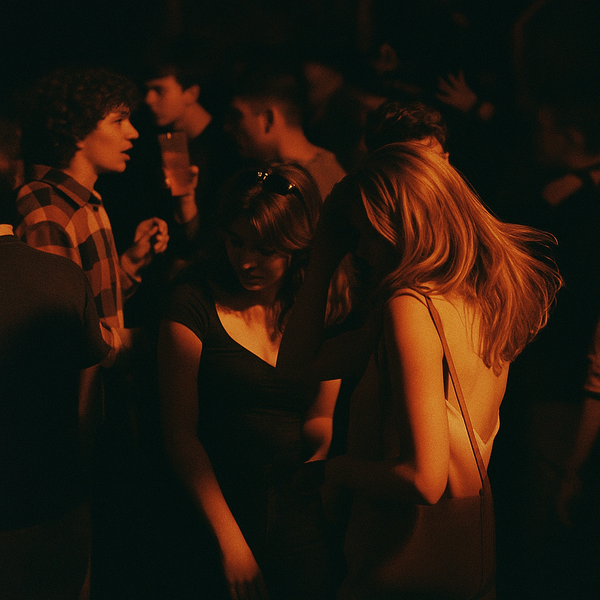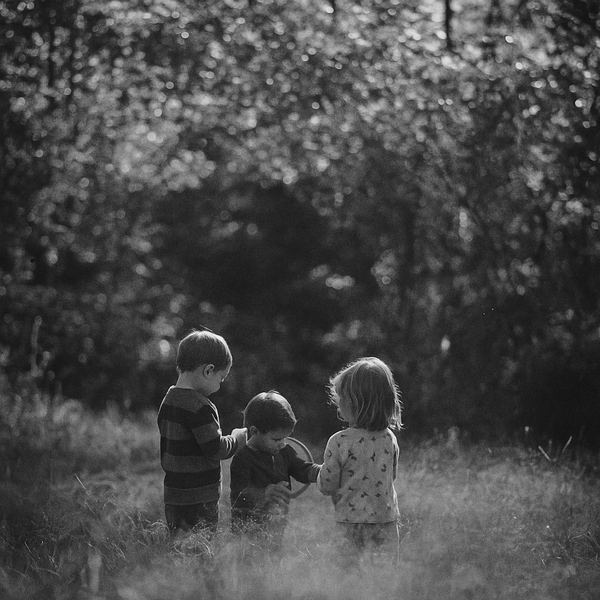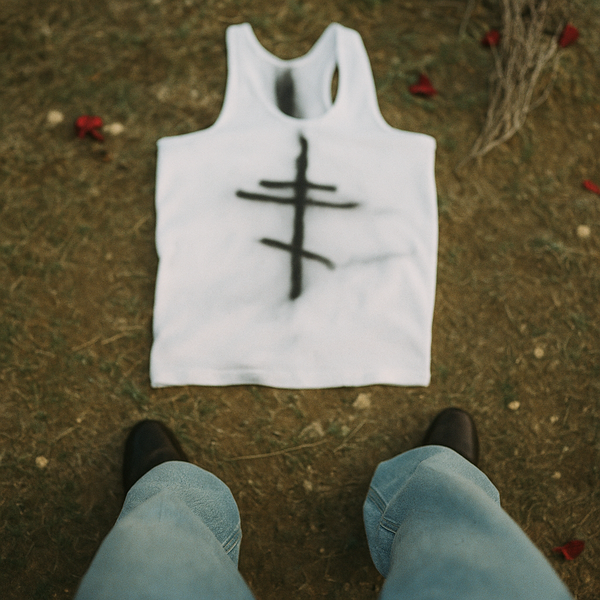When Death Metal Meets Beauty Queens: A Harmony of Contrasts

The most beautiful things happen when worlds collide—not in the explosive, destructive way, but in that perfect moment when two things that shouldn't work together suddenly create something nobody saw coming. Like when Ignacia Fernández, a Chilean beauty queen, stepped onto a stage and unleashed a death metal growl that could strip paint off walls. The internet lost its collective mind, and honestly? They should have. Because what happened wasn't just a viral moment—it was a reminder that humans are walking contradictions, and that's exactly what makes us magnificent.
Here's what went down: Fernández, competing in a beauty pageant talent segment, chose to perform a death metal piece. Not a ballad. Not a dance routine. Death metal. The kind of music that erupts from somewhere deep and primal. She stood there in full pageant regalia—the hair, the makeup, the whole production—and then opened her mouth to release sounds that would make Cannibal Corpse proud. The juxtaposition was so perfect it almost hurt. Beauty queens are supposed to sing "My Heart Will Go On" or maybe something from The Greatest Showman. They're not supposed to channel the dark lords of the underworld.
But here's where it gets interesting: this wasn't some gimmick. Fernández co-founded her death metal band Decessus in 2020. She's a genuine fan who happens to also enjoy the pageant world. And why shouldn't she? The idea that you have to pick one identity and stick with it is about as outdated as thinking the internet is just for sending emails.
The Beautiful Absurdity of Being Human
Think about what beauty pageants represent in our collective imagination: grace, poise, traditional femininity wrapped in evening gowns and careful answers about world peace. Now think about death metal: aggression, darkness, rebellion against everything soft and comfortable. These two worlds aren't just different—they're supposedly enemies in the great culture war of What Kind of Person You're Allowed to Be.
But Fernández just walked right through that wall like it was made of tissue paper. And the response? Pure joy. The video exploded across social media not because people were mocking her, but because they recognized something profound in the absurdity. It's the same feeling you get when you see a grandmother playing Grand Theft Auto or a hedge fund manager who collects My Little Pony figures. These moments remind us that humans are not brands. We're chaos wrapped in skin, full of contradictions that marketing departments would call "off-message."
Multiple outlets reported that she received a standing ovation, and judges on the Chilevisión broadcast expressed surprise at her performance. And that's exactly the point. Comfort zones are meant to be violated.
Breaking the Algorithm of Identity
We live in an age where algorithms try to figure us out, to put us in neat little boxes so they can sell us the right deodorant. You liked this death metal album? Here's seventeen more bands that sound exactly the same. You watched a makeup tutorial? Let's flood your feed with beauty content until you forget other interests exist. But humans are not playlists. We're mixtapes recorded over other mixtapes, creating beautiful accidents and unexpected harmonies.
Fernández's performance is a middle finger to the tyranny of consistency. She refuses to be one thing, and in doing so, she gives everyone else permission to be complicated too. The investment banker who writes erotic Pokémon fan fiction. The kindergarten teacher who races motorcycles on weekends. The death metal vocalist who also happens to love the ritual and celebration of beauty pageants. These aren't contradictions—they're the full spectrum of being alive.
What's particularly brilliant about this moment is how it reveals the secret similarities between these supposedly opposite worlds. Both beauty pageants and death metal are about performance, about transformation, about becoming something larger than your everyday self. Both require discipline, practice, and a willingness to be judged by strangers. Both involve elaborate costumes and carefully constructed personas. The only real difference is the soundtrack.
The Democracy of Weirdness
The internet's reaction to Fernández tells us something important about where we are as a culture. We've reached a point where the weird kids won, where being multifaceted isn't just accepted but admired. The monoculture is dead, and in its place, we have millions of micro-cultures bleeding into each other, creating new hybrid forms that would have been unimaginable a generation ago.
This is the real promise of our connected age: not that we'll all become the same, but that we'll all get weirder in more interesting ways. Every niche finds its people. Every strange combination of interests has a subreddit. Every person who thought they were alone in their particular brand of weirdness discovers they're actually part of a tribe they didn't know existed.
Fernández didn't just perform a death metal song at a beauty pageant. She proved that identity is a buffet, not a prix fixe menu. She showed that you can growl like a demon on Tuesday and discuss your skincare routine on Wednesday, and both can be equally, authentically you.
The next time someone tells you that you can't be multiple things at once, that you need to "stay in your lane" or "pick a side," remember the beauty queen who chose violence—musical violence—and made the whole world smile. Because the best parts of being human happen in the spaces between categories, in the moments when we surprise ourselves by being more than anyone expected.
That's the harmony of contrasts: not resolution, but celebration. Not choosing sides, but building bridges out of pure enthusiasm and a refusal to be boring. Ignacia Fernández didn't just sing a death metal song. She reminded us that we all contain multitudes, and sometimes those multitudes want to scream.
References
- https://www.theprp.com/2025/11/06/news/decessus-vocalist-ignacia-fernandez-played-her-bands-death-metal-song-at-the-miss-world-chile-semifinals
- https://loudwire.com/ignacia-fernandez-miss-world-chile-death-metal
- https://lambgoat.com/news/50358/decessus-front-woman-ignacia-fernandez-performs-bands-song-during-the-miss-world-chile-semifinals
- https://metal-stop.com/ignacia-fernandez-death-metal-vocalist-stuns-miss-world-chile-judges-and-advances-to-final-video
- https://www.hola.com/us/celebrities/20251106866220/miss-world-chile-2025-ignacia-fernandez-death-metal-video
- https://www.lanacion.cl/ignacia-fernandez-la-candidata-a-miss-mundo-chile-2025-que-sorprendio-con-su-voz-gutural-cantando-metal
- https://mvsnoticias.com/tendencias/2025/11/6/ignacia-fernandez-participante-de-chile-sorprende-en-miss-mundo-con-cancion-de-death-metal-718909.html
- https://www.elheraldo.co/entretenimiento/2025/11/06/video-ignacia-fernandez-candidata-al-miss-mundo-chile-sorprendio-cantando-death-metal-en-su-prueba-de-talento/?outputType=amp-type
- https://www.periodicodeibiza.es/vips/quiosco-rosa/2025/11/05/2505849/miss-mundo-chile-ignacia-fernandez-deslumbra-cantando-death-metal-semifinal.html
- https://www.chilevision.cl/noticias/show/no-me-imaginaba-que-era-ella-ignacia-fernandez-sorprendio-con
- https://www.biobiochile.cl/noticias/artes-y-cultura/musica/2024/04/04/ignacia-fernandez-candidata-death-metal-a-miss-chile-no-por-ser-modelo-soy-menos-metalera.shtml
- https://blabbermouth.net/news/watch-miss-world-chile-contestant-surprises-judges-by-performing-song-from-her-death-metal-band
Models used: gpt-4.1, claude-opus-4-1-20250805, claude-sonnet-4-20250514, gpt-image-1




